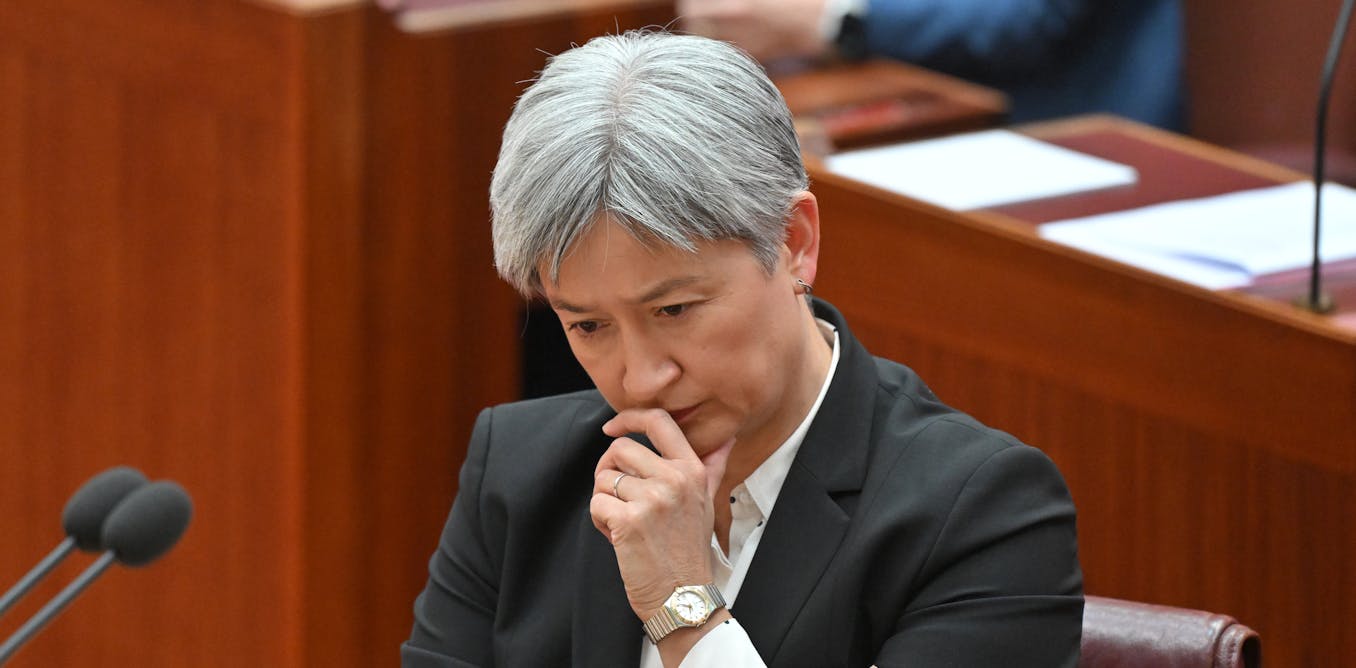by SARAH DEHM & JESSIA WHYTE

Last month, US Republican lawmakers renewed calls to sanction officials of the International Criminal Court (ICC) in retaliation for the arrest warrants it issued against Israeli Prime Minister Benjamin Netanyahu and former Defence Minister Yoav Gallant.
In contrast, Australian Foreign Minister Penny Wong reiterated the need to respect the “independence of the ICC and its important role in upholding international law”.
These divergent responses highlight a core problem with Australia’s current approach to sanctions, which is the topic of an ongoing Senate inquiry.
Shadow Foreign Affairs Minister Simon Birmingham initiated the review to seek ways to better align Australia’s sanctions with those of allies like the US.
Instead, the review should be an opportunity to reset this flawed principle of alignment in favour of an approach grounded in core principles of international law.
Australia’s history of sanctions
Sanctions are official measures that prohibit trade and economic relations with particular states or individuals for a range of reasons. These can include to pressure a state to change its behaviour, enforce international norms or isolate individuals for unlawful behaviour.
Australia’s sanctions regime is made up of two categories:
- sanctions that implement decisions of the UN Security Council
- “autonomous” sanctions that Australia applies unilaterally.
Historically, Australian sanctions have at times preceded Security Council action. In the mid-1960s, Australia followed the United Kingdom in sanctioning the white supremacist rule in Rhodesia (now Zimbabwe) before the council adopted sanctions.
Australia also sanctioned apartheid-era South Africa in the mid-1980s in the absence of Security Council action – and in the face of initial opposition from the UK and US.
Since 2011, Australian legislation grants the foreign minister broad discretionary powers to impose unilateral sanctions on other countries. This system has recently been expanded to include sanctions of individuals engaged in corruption and serious abuses of human rights.
Australia now imposes a range of sanctions autonomously, including travel bans and freezing of financial assets. This includes sanctions on the political and military leaders of Myanmar, Zimbabwe and Russia.
In practice, Australia has a policy of aligning its nominally “autonomous” sanctions decision-making with its so-called like-minded partners, such as the US.
For example, Australia has so far decided not to unilaterally impose sanctions on Israel’s political and military leadership. This is despite sustained civil society pressure and a historic ruling of the International Court of Justice.
Foreign Minister Penny Wong defended the decision on the basis that “going it alone gets us nowhere”.
When Australia applies sanctions, we coordinate with partners. That’s what makes them effective.
Dangers of a ‘like-minded partners’ approach
Yet, this rhetorical appeal to alignment with “like-minded partners” fails to recognise the dangers of such an approach.
The Conversation for more
